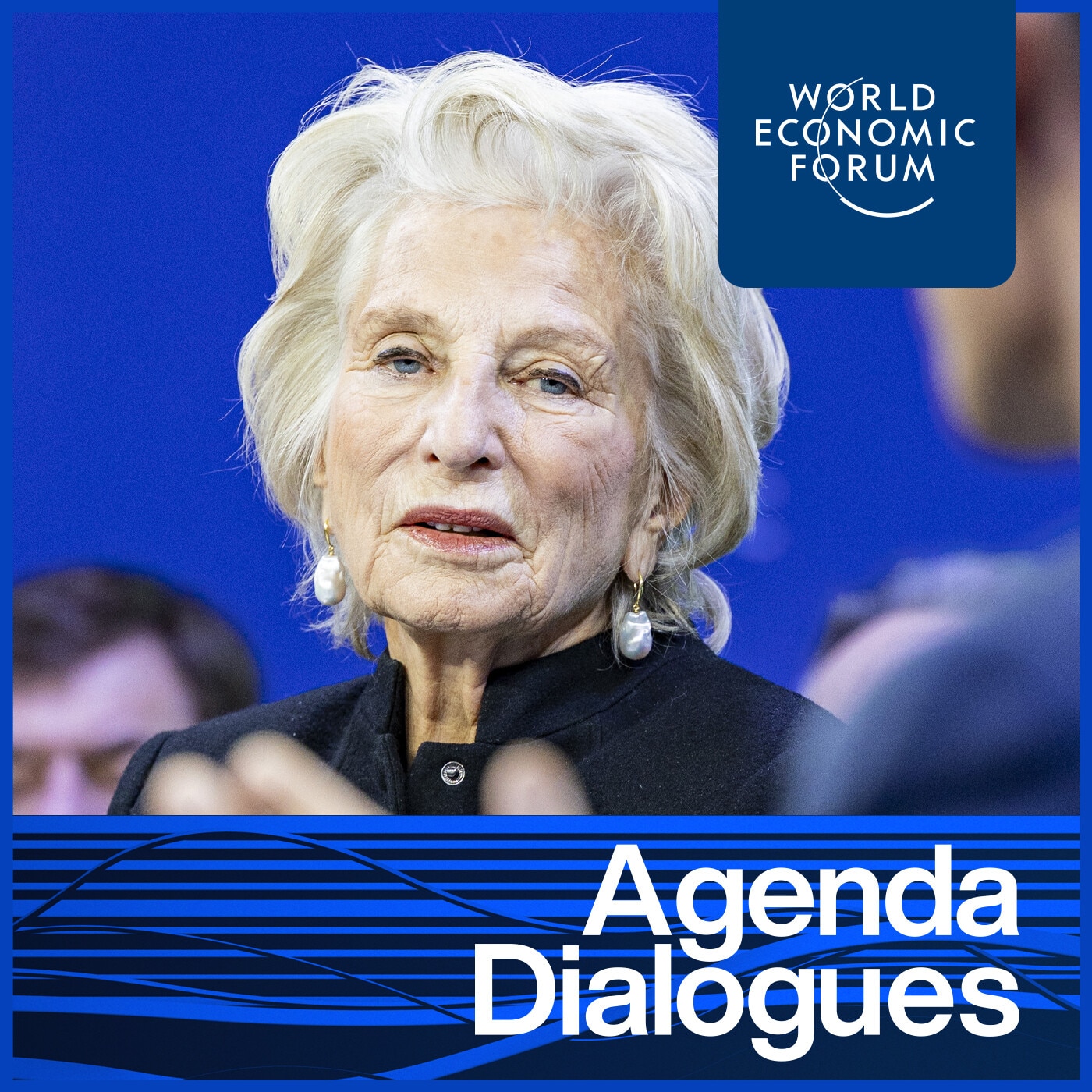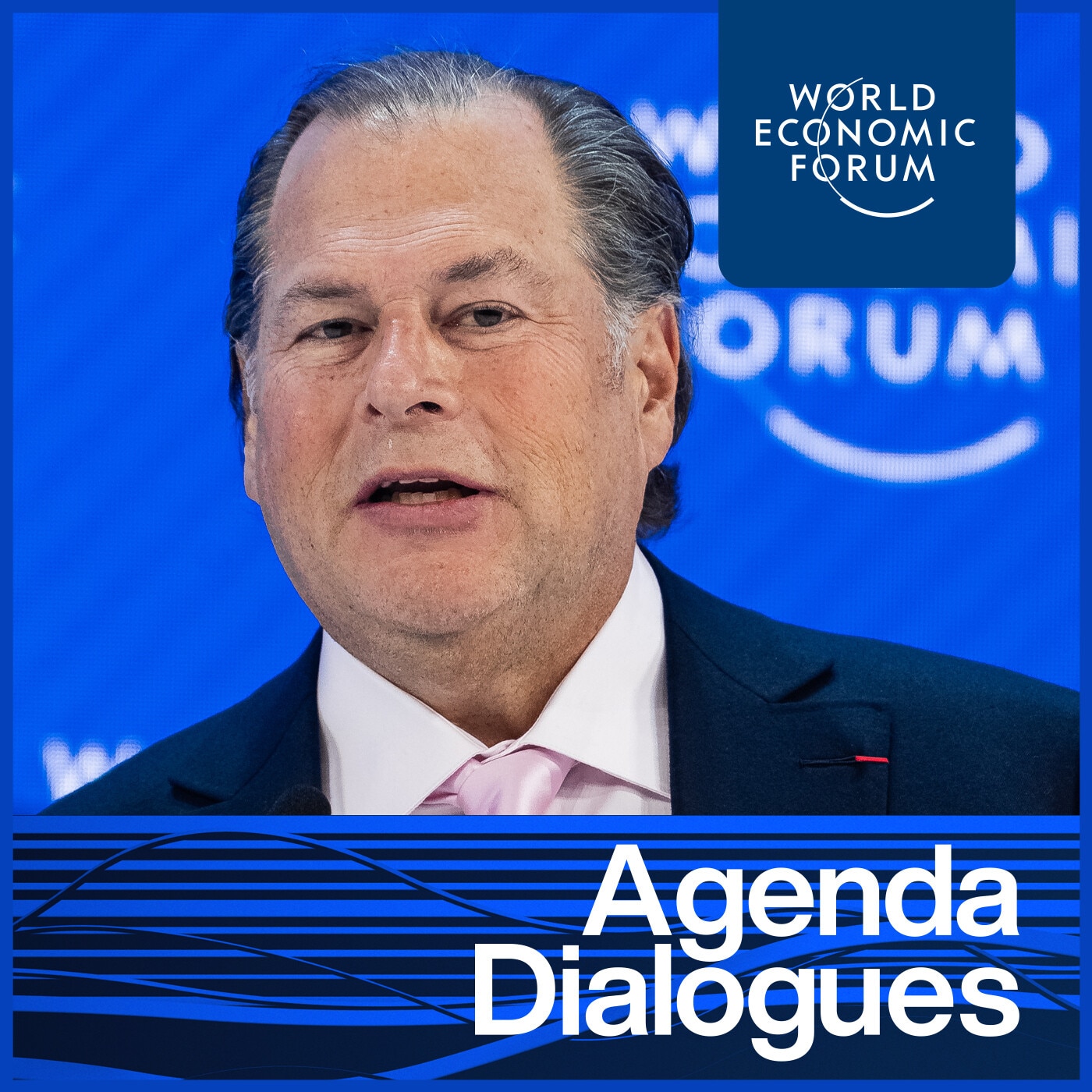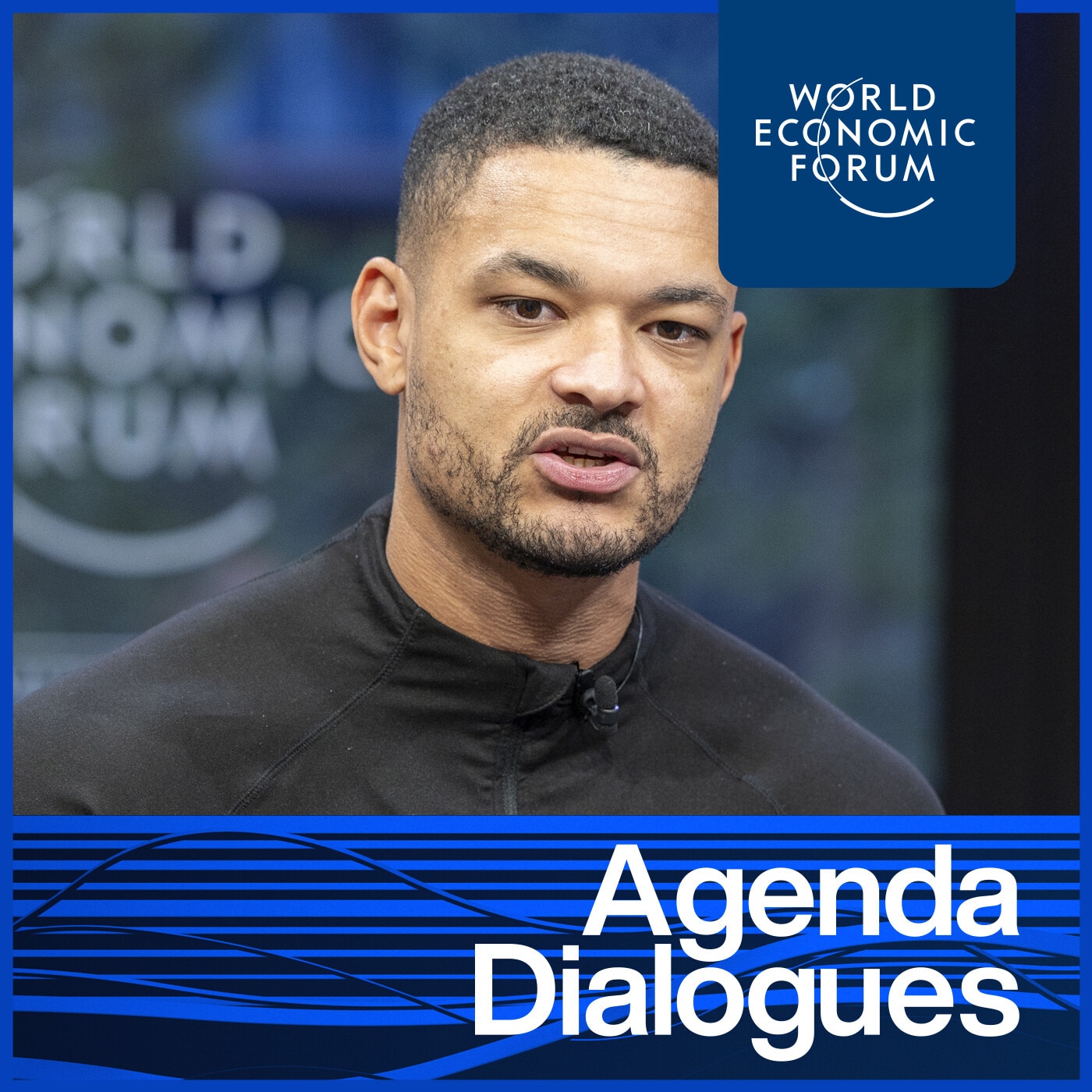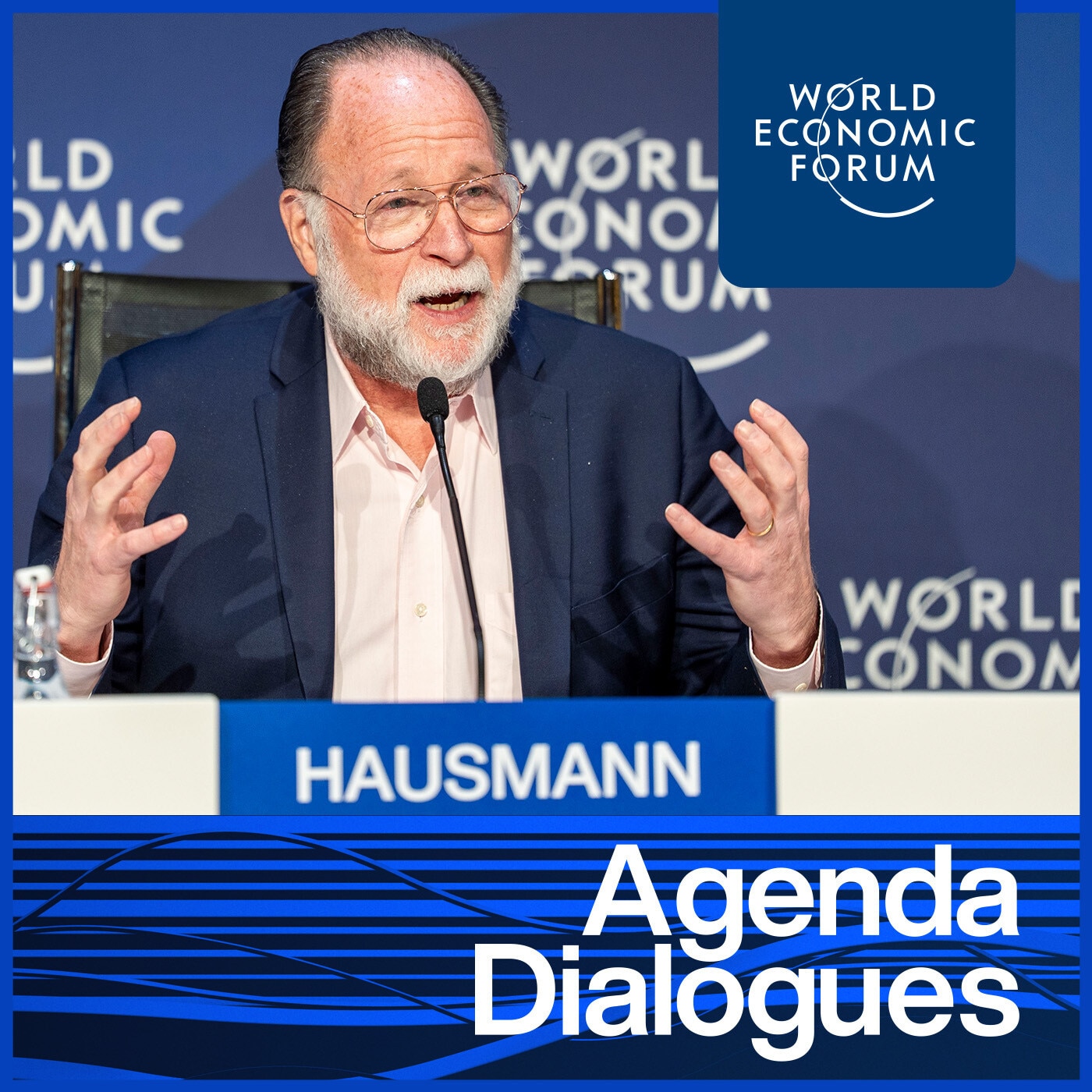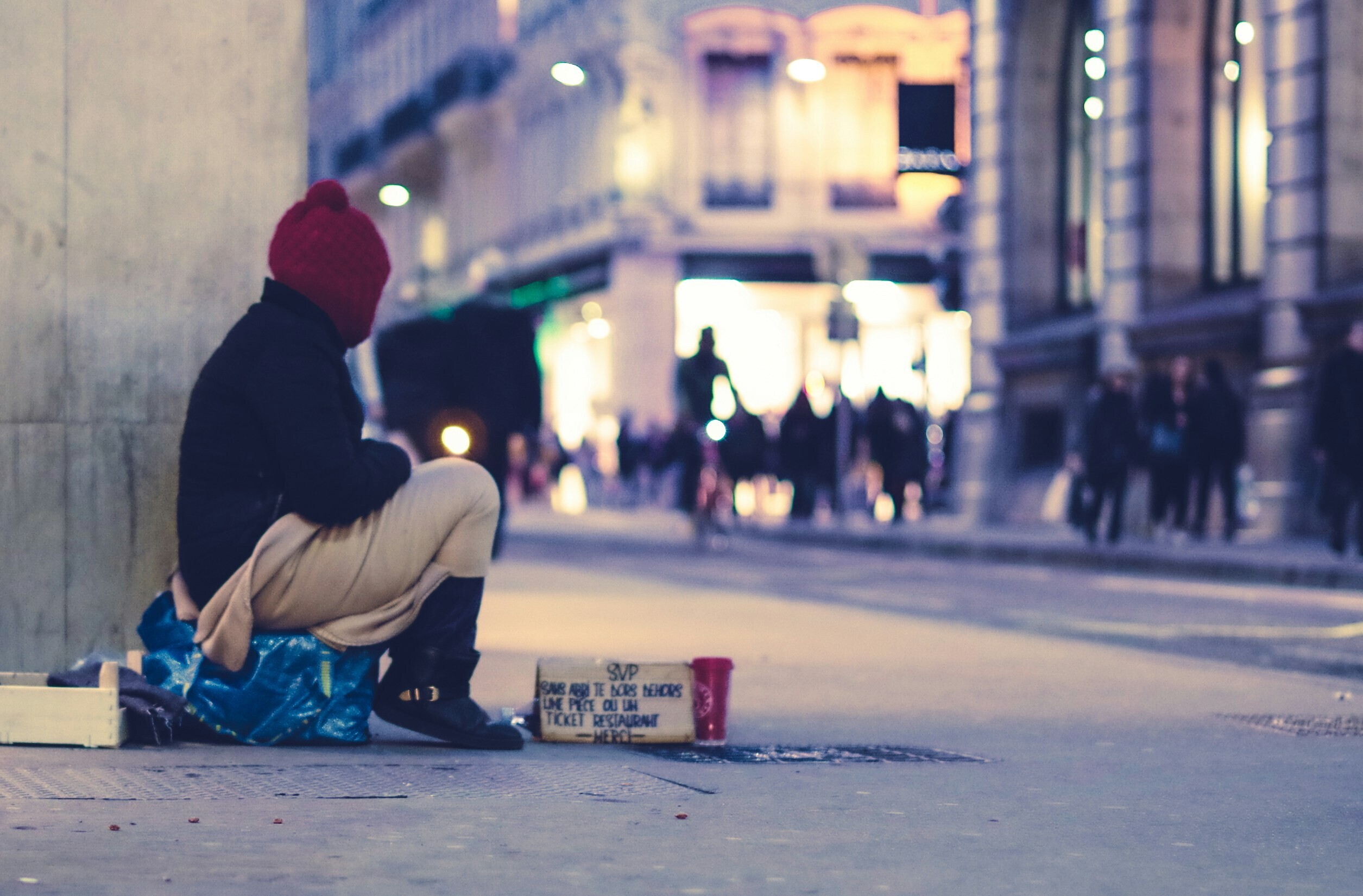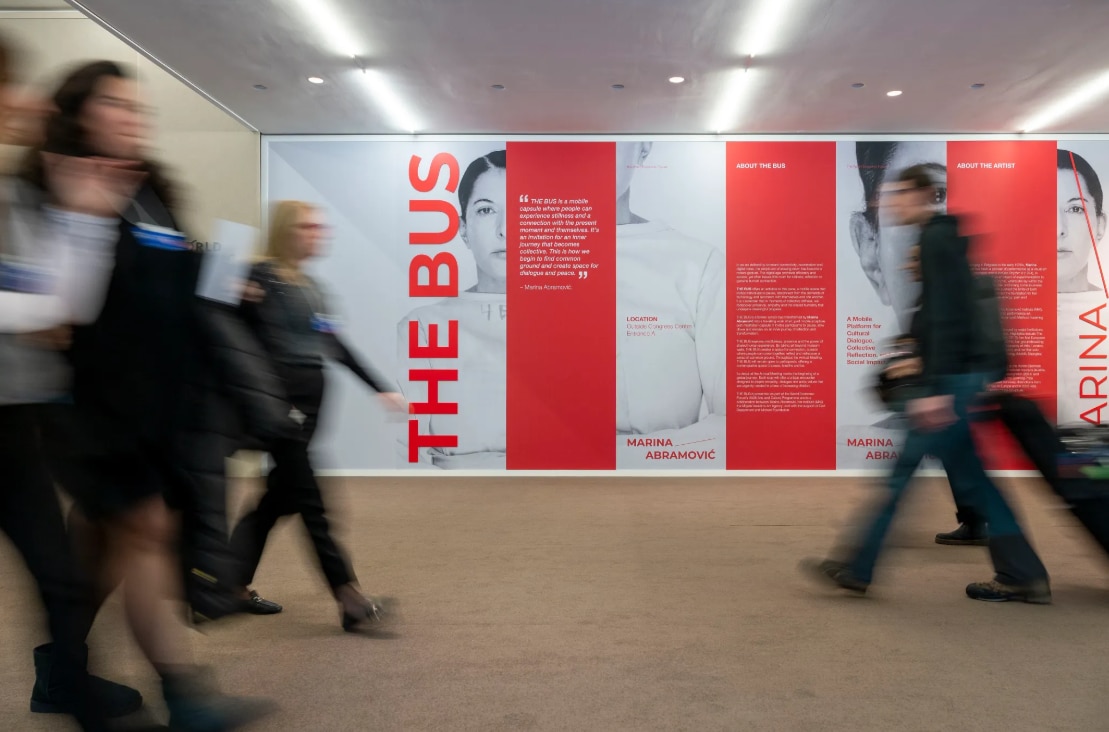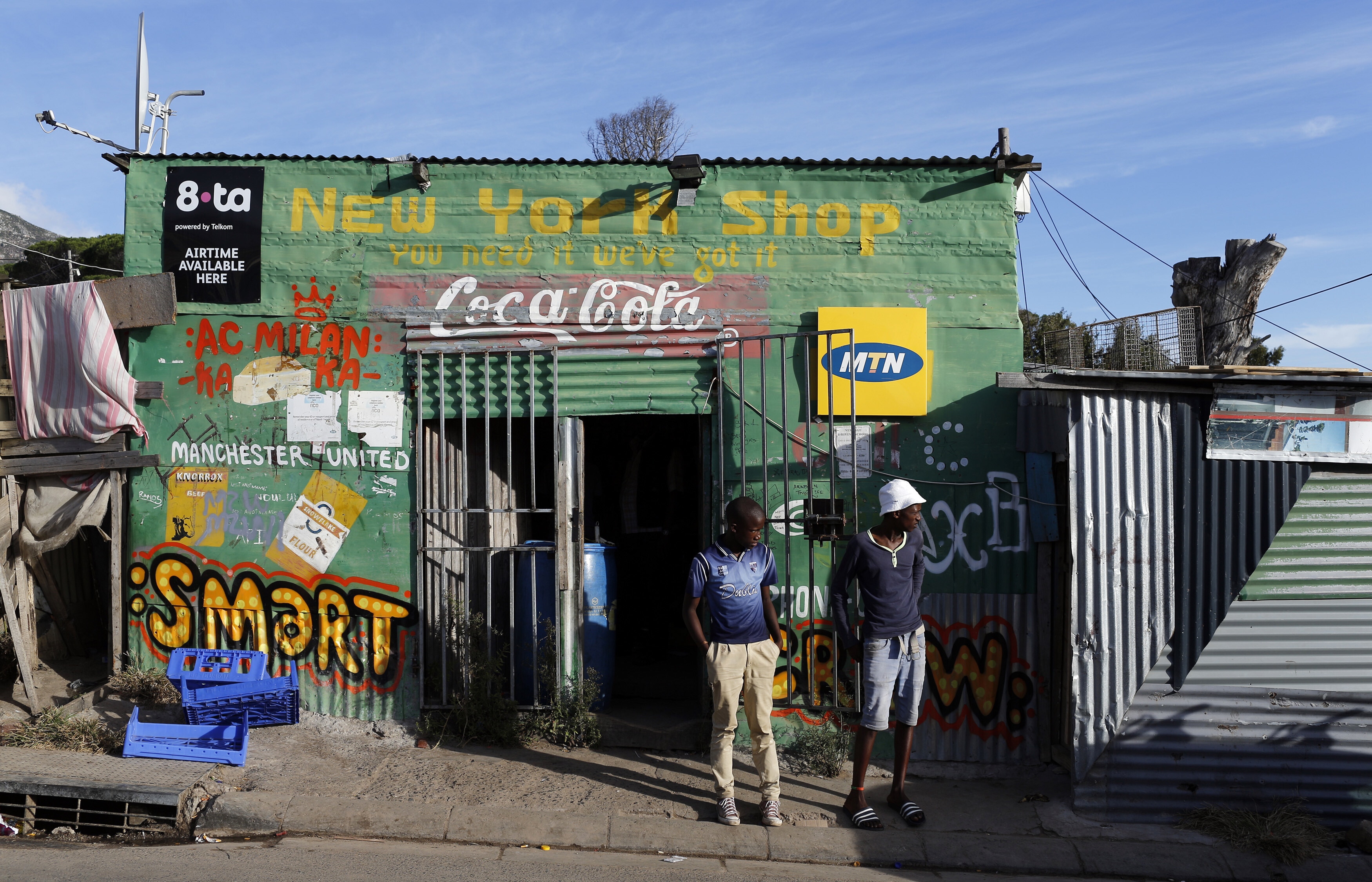Davos 2023: Finding Europe's New Growth
Podcast transcript
This transcript, generated from speech recognition technology, has been edited for web readers, condensed for clarity, and may differ slightly from the audio.
Roula Khalaf: Hello, everyone. Good to see you all here and thanks for joining us. Hope it's not too chilly. I have to stand up because otherwise. I can't see Christian. I'll sit down in a sec. If we had been meeting two or three months ago, I think this would be one of those really depressing Davos sessions because inflation was on a tear, Ukraine war was raging. It felt as if Europe was going into a deep recession. The good news is that we're not there. I am generally a lot more optimistic. Much to Putin's dismay, Europe is not likely to suffer more than more than Russia. Not in the medium-term, not in the long-term and not even in the short-term. Gas prices are back to pre-war levels. Inflation seems to have peaked, although I'm sure we will hear a lot more about core inflation in this session. The question to me and one that I will be also putting to the panel is what are the medium-term prospects? Because there are still very big challenges, whether it's from pressure from the US on IRA (Inflation Reduction Act), on decoupling from China. We still have tight labour markets and energy costs that are not going back to where they used to be. So I couldn't have hoped for a better panel. Christine Lagarde, President of the European Central Bank. Valdis Dombrovskis:, European Trade Commissioner. Andrej Plenkovic, Prime Minister of Croatia. Mark Rutte:, of course, Prime Minister of the Netherlands and Christian Sewing, CEO of Deutsche Bank.
Mrs. Lagarde, I'm going to start with you to give us a bit of an overview of your expectations for this year. And more specifically, what do you need to see to be more confident that we are on the right trajectory when it comes to inflation? What are you looking at?
Christine Lagarde: First of all, good morning to everyone and thank you for being here. But the first thing that we look at is the activity and the activity on a global basis, the activity at the Euro area level. And I agree with you that the news have become much more positive in the last few weeks. The rhetoric has moved from recession in Q3, Q4, and possibly plus to recession in Q4 and Q1 of 23 to now this small contraction. And with leaders of some of the major players in Europe actually arguing that there will be no recession. I think the case made by Olaf Schulz on Germany a couple of days ago was explicit, too.
So, we look at that and what we are seeing at the moment is clearly an activity that is declining compared with an excellent 2022, where growth was 3.4 to a growth projections that we have full 23 of 0.5. So, it's not a brilliant year, but it is a lot better than what we had feared. So, we start with that.
And then, of course, our focus is inflation. I'll come to that in a second, but I would like to point out one other factor which we look at, which is critically important for our assessment of inflation expectations and inflation evolution and that is the job market. And the job market in Europe has never been as vibrant as it is now. The unemployment number is rock bottom compared with what we've had in the last 20 years. And the participation rate, which matters as well, is also at a very, very high level, and that is pretty much homogeneous throughout the Euro area. Now, you asked me about inflation, and inflation is obviously the prime mission and the primary objective of the ECB (European Central Bank), because our mission is to procure price stability, without which growth, investment decisions by economic actors is going to be hampered.
So, on inflation, we have way too high numbers. I know that a lot of journalists made a big fuss about the fact that headline numbers had gone down most recently and you also mentioned yourself that we have to look at core inflation, which is certainly critically important. So, we look at all the composition of inflation from headline to core to sticky, to stripped out all sorts of elements. Inflation, by all accounts, however you look at it, is way too high. And our determination at the ECB is to bring it back to 2% in a timely manner and taking all the measures that we have to take in order to do that, which is why we have already increased interest rates by 250 basis points. And we shall stay the course until such time when we have moved into restrictive territory for long enough so that we can return inflation to 2% in a timely manner.
Roula Khalaf: Do you think it is becoming entrenched?
Christine Lagarde: What you need to do for that is, what we what we do is we look very carefully at inflation expectations because that that's a key driver and we are not seeing inflation expectations de-anchoring in any significant way. It varies a little bit around, too. We look at surveys, we look at market expectations, we try to measure in all shapes of forms. But inflation expectations are not de-anchoring and what we have to avoid is that they would be at risk of de-anchoring.
Roula Khalaf: When we think about growth, we hear a lot of investors worried that the ECB could tighten too much, especially if, as expected, inflation sort of drops quite precipitously to, let's say, 4%. And I'm sure everyone here has heard at Davos this magic 4% that everyone thinks we're going to get to fairly quickly. Does anyone on the panel worry about over-tightening? Christian, I see you.
Christian Sewing: I'm not worried. I mean, because first of all, I have to say that I think the ECB has done exactly the right thing since the last summer. And I can only encourage and I'm appreciating the comments from Christine that she's clearly saying we are staying the course because I think the worse that can happen is that we bring inflation not under control. Inflation is the thing which is a poison for the economy. And while I agree to all the comments that there is more optimism in the economy, the underlying problems which we have in Europe, high inflation, also certain other structural reforms, are not gone and if we come into this situation that we potentially get inflation a bit down, but over time we never get control of it, then we come into the spiral that we also hear from other participants in the economies like the unions. We will get a different answer because I think they have remained very calm. They have played, in my view, together with the corporates and with all the participants, a game that we can over time tame now the inflation.
So I think this consequent answer is exactly the right thing. Then there is one more worry I have, and that is, you know, if China and this is again one of the reasons why the economy is now looking a bit of a bit better, but we also need to watch what kind of impact the opening of China has on our inflation. And therefore, it is so important that we keep the consequent line Christine just laid out, and I think that is important because if we get that under control, I'm absolutely convinced that Europe can grow in the medium and long term, and that's the most important.
Roula Khalaf: Clearly, inflation has also eased a bit because of Chinese demand, because Chinese demand, especially for energy, was depressed and China is definitely reopening. But, Commissioner, I just wanted to get you on fiscal policy. You have warned that fiscal and monetary policy have to go in the same direction, which of course is not the case in some countries. Can governments start reducing their budget deficits and move to a stricter fiscal policy? And is that what you really want to see right now?
Valdis Dombrovskis: Well, indeed, if we want to respond to current economic circumstances, which is, in any case, slowing growth and high inflation, we need to have a consistent macroeconomic policy mix. So there needs to be indeed a consistency between monetary policy and fiscal policies that kind of work across purposes. That's why our recommendation, European Commission's recommendation, for this year is to have a broadly neutral fiscal stance in the euro area and where we see possibilities to bring down budget deficit is related to how well that support measures for energy for households and businesses are targeted, because around 70% of the support measures are not targeted. So, it amounts to substantial fiscal stimulus, but it actually feeds into inflation. It does not send a price signal. It does not help reduce energy demand and thus does not help also to reduce energy prices.
Roula Khalaf: So you want the second phase of the support to be a lot more targeted?
Valdis Dombrovskis: We have also came was a concrete model which we propose for member states, so-called two tier pricing systems that after certain consumption level, consumers receive a subsidised price and above this consumption level are paying market price. So basically, having this intention also to reduce on the consumption side. So that is one thing that we need consistent policy mix. And the other of course we need to do also targeted measures to get energy prices down because that issue will remain with us. We are having elevated energy prices. Our forecast of well fossil fuel prices will stay elevated for a foreseeable time. We have seen lots of volatility. So, on one hand, we have done a lot of also market intervention measures to deal with those specific issues. On another hand, we are accelerating our green transitions or moving faster towards renewables, towards energy efficiency measures. But that of course means that we need to sustain also this investment for those purposes. And that's what our Recovery and Resilience Facility comes in. And this year should be a big year for disbursements of Recovery and Resilience Facility. That's where our REpowerEU plans come in. But what I also wanted to emphasise on the energy side, we also need to continue to deal with energy security of supply issues because yes, this winter we have plenty of gas in the storages so we can be confident we’ll go through the winter. But this winter we still have a lot of Russian gas in our storages which was pumped in the first half of last year and this is not going to be the case next winter. So, we'll still have to seek yet substantial additional gas supplies from other providers also for the next winter. And that's in a context, as you mentioned, where China's economy is opening up and also maybe seeking more gas supply. So, there are still challenges ahead of us.
Roula Khalaf: Prime Minister, I see you nodding. Are you worried about storage? Because we could get a combination of, you know, storage facilities that are not full, a harsher winter, because even though the weather here has been miserable, actually, we're having a mild winter and China demand coming back.
Mark Rutte: I'm not overly worried, but we have to stay concentrated on this issue and it has to do with refilling the storage capacity. We also need to make sure that we- we are doubling in my country the LNG imports. Germany is massively building these floating LNG terminals. At the same time, of course, we have to work on the energy transition for the longer term though, my worry is more on the previous subject and that is inflation in combination with low longer term growth prospects for Europe. And I strongly believe we have to do a few things at the same time. We have to bring down government borrowing. It's still too high in Italy and France and other countries and our big economies and that is really hampering long term growth. And in the short term, we have to spend hundreds of billions, also in the Netherlands, to support household incomes, low income, lower incomes, middle incomes, logically, otherwise, you would have big issues with people not being able to pay for the energy prices and energy bills. But longer term, this is not sustainable. So they have to become more targeted and for the shorter term, somehow we need to offset those extra spendings with savings wherever we can find them, or actually economic growth opportunities, because otherwise it could fuel inflation in itself. So, for the longer term, for me, it means bringing down government borrowing is crucial in all of the European Union, but particularly some of the big economies, whilst at the same time and this is particularly difficult, put in place the necessary structural reforms, particularly in the pension sectors. When you look at Italy or France or some other countries, they are spending 10 to 15% of GDP on pensions and that money is gone. I mean, it's fantastic, of course, that you can do that but in the Netherlands we are spending 5% on pensions. So that gives you a 10% extra space to invest in education and innovation or just to lower taxation. And longer term, that is not sustainable. I'm happy that the French have now decided to move on the pension issue. My sister was just retiring at age 68. In France, I can retire at age 64 by 2030, but at least that step is now being taken. And still, you will see that society of France will storm the the Élysée because they don’t agree.
Yeah, our story of the elegy to it, because they do not agree.
Roula Khalaf: It might be a bit too early to be congratulating the French.
Mark Rutte: No, exactly. But we also need to message, I believe, collectively that this is crucial because we do not want Europe to be a sort of museum where you go to because of the beautiful cities, it has to be the place of growth, of innovation, of industry base and government borrowing under control. Structural reforms in place are the recipe for this. And I'm extremely happy with this, Commissioner, because this is exactly the recipe it is following.
Roula Khalaf: Lots to come back to. Prime Minister Plenkovic. Well, congratulations. You've just passed a huge milestone. You've joined the euro. How's that going for you?
Andrej Plenković: Well, the feeling is very good. I have to admit it was an exercise of a six year long and very well accompanied reforms internally and also with the whole dialogue that we had with the commission, with the ECB, with the Eurogroup and it was a great success. I think the main frame I would say, the punch line, is that Croatia is less exposed and better protected in the crisis being a member of the Eurozone. We are also the only country of the European Union ever to have joined both the Euro Zone and Schengen area on the same day. And I here I thank in particular, Mark. This was also a long and tough process, so we have transformed our international position literally three weeks ago. In terms of preparation, technically what the state was responsible for enough euro banknotes, enough euro coins, cash machines functioning, transfer of payments — perfect, not a single problem. What we witnessed is that some of the economic operators used the occasion of withholding a little bit more than was reasonable. But now we are addressing this issue, trying to convince them that if you had a government which along all of the other partners in Europe was intervening in terms of state interventionism heavily in order to create a buffer for the externally based crisis, a horizontal one — Russia's aggression in Ukraine, energy crisis, food crises, inflationary pressure — we did well. We had a very comprehensive package of €3.6 billion for our citizens and companies. Then we felt that the part of the social responsibility of all the actors in our market is to behave adequately. And in this respect, there is a little bit of fine tuning to be done, but I think it will calm down. So, our feeling is that Croatia has managed to keep the inflation at 10.8% in the last year, which is lower than other countries of the EU who are from Central and Eastern Europe and do not wish to join the euro zone yet, they have higher one. So I think we did a very good preparation. I think we have enough fiscal capacity over the past couple of years to sustain the targeted support of the most vulnerable in this 2023.
And we've done really a great job in terms of regulating prices of electricity, gas and also the oil derivates. So with these three elements, because energy is, I would say, the main source of our problem, because if we address this issue, all the others will fall in place, including inflation that we have so far done very well. And with this stronger position, I expect that even though we will have a lower growth of GDP in 2023, then of course in this year we expect it to be around 6%. But still it will not put us in a position where we could not cope with all the challenges that are ahead. So I would say a positive conclusion for 2022 and less pessimistic for 2023. On the contrary. And the whole atmosphere that I've seen here in Davos seems to be going in the direction. That is already a good signal.
Roula Khalaf: Absolutely. I want to move the discussion now a little bit towards what Europe needs to bolster its competitiveness. Mrs. Lagarde, I know you have very specific ideas.
Christine Lagarde: Thank you very much.
Roula Khalaf: And if you want to comment on anything that's said.
Christine Lagarde: I completely support many of the points that have been made by my colleagues on the panel. But I think as we are by necessity, moving towards this twin transition of digital and green. To put it simply, and that was perfectly identified in NextGenerationEU and in the Recovery and Resilience Fund that was set up, so we have to move towards digital and green transition. We know that the financing for that is going to be phenomenal. According to the Commission numbers, if I recall of all this, it's half a trillion dollars that will be needed from now until 2030 in order to move fast in those steps that will give us more independence, less vulnerability towards the foes of this world. And if we have to do that, we need to take rapid steps. Step number one, in my view, and I know that this is shared by other members of the panel, we need to get really serious, determined and fast on capital markets union. Some of you in this room have heard about Capital Markets Union for the last ten years. I have too, but there are a few nuts that need to be cracked in order for the capital markets union to actually happen. I am less optimistic about banking union, but capital market union we can do it if there is enough political impetus. There is good will at the commission to actually do the work that needs to be done. It's the single point of entry. It's the bankruptcy law that needs to be slightly harmonised, a bit further, a bit better. It's tax measures that have now been agreed at the OECD and that need to be ratified across the the European Union, as I'm sure it will before January 24, and more needs to be done in order to have one single supervisory authority, in order to make sure that that capital union actually works. This is not enough, but it has to be done. Why is that? Because public money will not suffice. Public money will crowd out private investment. But public money could certainly be blended with private money in order to finance those significant investments.
So my suggestion is that we move ahead fast and that we look at all the additional measures that need to be taken. If you look, for instance, at research that was conducted at the ECB, equity is the best way to channel money to those sectors that require innovation. It's a simple fact. It's demonstrated by academics and by review. Well, guess what? If the tax rules are such that you actually encourage debt rather than equity, how do we think that we're going to mobilise equity now? The Commission has moved. We need to continue that movement in order to encourage equity and there's plenty of money around to go towards those investments that will transition us to a place where we are less vulnerable, more independent, more sovereign. And if CBDC (Central Bank Digital Currencies), digital euro, can accompany the process, I'll be even happier.
Roula Khalaf: Let me ask you, Commissioner, about the IRA (Inflation Reduction Act), because you have said that the IRA could drive more European companies closer to China and thus run counter to what the US in fact wants to achieve. And there's now a task force at the White House. There are talks. Have you seen any progress at Davos? Because this has been a major topic of discussion.
Valdis Dombrovskis: Yeah, maybe. Before I move to Inflation Reduction Act and our discussions with the US, just really express our full support on this workstream on the capital markets union. That's indeed critical for us to move forward, both to finance our green and digital transitions and to ensure the overall competitiveness of European economy. Europe is very good as regards its start-ups landscape, but then when it comes to scaling up companies, we see many companies going scaling up to US, to Asia, to other places, well primarily US and Asia. And thus, of course, it means that those companies are not creating all the jobs and economic activity in the EU. So capital markets union can be important part of this answer.
But to move to the Inflation Reduction Act. Indeed, when we are discussing green transition, obviously we welcome the aims of the Inflation Reduction Act that US is working seriously also on its green transition against climate change. But our concern is that it's done in a discriminatory way and in a sense it's not helping to build transatlantic value chains on the green transition, but rather actually severing those value chains. So that's why we are indeed engaged at different levels with US. And just earlier this week, I had a discussion on this with US Trade Representative Catherine Tai in Brussels.
Roula Khalaf: Does she understand?
Valdis Dombrovskis: Well, that's why we held this also EU-US Joint Task Force, which deals with this issue. We have, I would say, halfway satisfactory solutions on clean vehicles, tax credits. But there are many other areas which we need to address. On some areas there are some openings from the US side. So, we continue to work. We know that further kind of delegated acts coming from the Inflation Reduction Act will be prepared by March. So we still have a bit of a time. So we'll have to see how far we will be able to go in terms of addressing our concerns.
Roula Khalaf: But you think there is an acknowledgement now in the US that they decided on the IRA without regard to- because this was an American. You know, I mean, I heard senators say we didn't think for a second about Europe. This was not about Europe. And so you're all having now to explain the impact and the consequences?
Valdis Dombrovskis: Well, you know, I would not see just like an omission. You know, if it was an omission, it was probably easier to correct. But we all know that also President Biden was campaigning on Buy American. And this is some kind of manifestation of Buy American. So, I think also through this engagement we will be able to solve part of our problems. We probably will not be able to solve all of our problems. I know, for example, some of the senators, like Senator Manchin, mentioned already he’s in a sense saying he sees also the solution on clean vehicles tax credits as a loophole. So by no means we can interpret this as an omission. As I said, there are some openings. Also, President Biden himself said the that yes, Inflation Reduction Act is not meant to exclude partners like European Union. So we're trying to build on this and see how it materialises in concrete decisions and how the most discriminatory aspects, the most negative aspects of inflation reduction can be addressed.
Roula Khalaf: Christian, I know you want to come in probably on capital markets union, but I wanted to also just raise the broader question of: we are in a phase now of globalisation or at least constraints on globalisation, and that has ramifications for European growth. And I'd be very interested, Prime Minister Rutte also from you, how do you deal with this? Because you have a specific case, for example, with semiconductors.
Mark Rutte: Yes, we have to deal, of course, with both issues, the Inflation Reduction Act. It's funny, we are constantly repeating to the Americans, you are not doing enough. And now they implement legislation which will close the gap with the Paris Agreement. And now we’re saying, no, but not in this way. It's a bit silly and we should have a bit more self-confidence. So, I hear some forces in Europe saying we should get rid of the state aid rules. No, that will mean the end of the internal market. And there are some saying we need more European funding.
Roula Khalaf: State aid rules are going to be loosened, from what I heard two days ago.
Mark Rutte: Targeted and surgical. That's okay. But let's make sure that not some people could now implement their agenda who want to get rid anyway of most of the state aid rules. And that's one of the reasons why the European Union is so successful in the internal market is so successful. And also this whole idea of another common funding project. I'm not for it. I mean, we have so much common money in the budget, in the resilience of funds which came out of COVID. And again, also here, I mean, my country is investing 35 billion between now and 2030 in the energy transition. And we also have to make sure that we have that space in our budgets at a national level, it cannot all be done at a European level. So I think we can get there. And with the Americans, I think there's a mix of unintended consequences, but I think the Commissioner is right. We should not be naive. Biden has been campaigning on Buy American, so there must be some of the elements of that. But I do believe that they want to with us try to solve most of these issues. And I know the Commission is working on that, and I'm not really pessimistic that we can get there. And on China, the main issue in Europe is we have no coordinated China policy. We have never been able to do that. And it also has to do with that we do not have a common foreign policy because at the end of the day, the big economies will still conduct their own foreign policy, which I understand, but at least we should coordinate better and strategise dialogue on China and other countries. And the US has a very clear China strategy, which is not necessarily exactly what we want.
Roula Khalaf: I'm not very clear on exactly what do you want, because it's very difficult to balance, you know, satisfying the Americans and maintaining trade and commercial relations to the extent that you have them today. So, I mean, I hear often, you can't have it both. You are going to have to go in one direction or the other.
Mark Rutte: But it's not that we have to choose between the US and China. We need to have our own policy. And our own policy should be, first of all, that we have the mindset that we want to be a player and not a playing field and the risk now without enough coordination of China and all the foreign policy issues is that we become the playing fields if we are not a player. And even France, Germany, Italy, Spain and the Netherlands we are too small to do it on our own, we have to do it collectively, these big issues. And on China, that means, of course, it's there. It's one and a half billion people. That is an economy which now has slackest growth since, 1976. But still, it is a huge economy. There's a huge potential with huge innovation base. So we have to deal with that. And at the same time, we have legitimate security concerns. Long term, we want to make sure that we keep leading edge on, for example, CENTCOM here in Europe and the US. We've got to make sure that supply chains are not disrupted. We ought to make sure that it's not just China, also other countries that we know that some of these high end chips can be used in defence systems. So, we ought to take that into consideration. And we are in dialogue with many of our partners, including the US, how to best deal with that. I think we will get to a common outcome, particularly on semiconductors, but this all originates again from reflected in Europe, not the commission. This is to Europe the member states not being able to coordinate sufficiently.
Roula Khalaf: Prime Minister Plenković, do you want to comment on this?
Andrej Plenković: Yes. When it comes to what is our main task is as leaders of the government, you have the theoretical context, you have the institutional framework, you have the international organizations, but you have electors, elections in your own people who need to see that the state, which is the closest one that they can see that can help them, can actually act. And in these last three years, and I said this last year at the panel, the only element which made the social cohesion to be kept properly was the state interventionism. State interventionism. And people recognise that. There was no other actor who could replace the state. And that's why the efforts which we are doing now after prolonged COVID, after Russia's aggression to Ukraine, energy crisis, food crisis, inflation, of course we need to be more flexible when it comes to state aid rules. We can't pretend that everything is normal because it's not. And we need to find measures which are adequate to be anti-cyclical of what Christine is doing by increasing the interest rate. But we need to be able to have a targeted subsidies to our companies and citizens that they can go through the period for which they are not guilty and they cannot solve it themselves, especially smaller economies. What markets said about the EU's policy or the EU member states policy vis-a-vis China, there were moments when smaller countries were, let's say, being put to the test: why do you have this dialogue with China, plus 16 or 17, some countries have left. And then you look at the trade. Every single day, the European Union trades 1 billion, 1 billion with China. The entire Croatia's trade with China is only one day of the EU's trade with China. And when we look at the numbers, you see that everybody is at the end of the day pragmatic. There is a big difference between China and Russia, what Russia has done to Ukraine. I don't see with all my background of being a former diplomat and someone that has spent a lot of time in foreign policy, I don't see a parallel threat. I see a specific global context for America, but I don't see a similar parallel threat that would endanger our economy, our way of life and our security.
And this is where the specific view with China comes from, all of us together. And I think this is important to understand — there is no total alignment immediately as a reflex. There is a pragmatic approach where if we are together, of course we are more influential. If we are fragmented, the one who is bigger, stronger will have a better hand in the negotiations. It's like in every single walk of life that we can imagine.
Roula Khalaf: I wonder whether the US administration actually accepts this argument? I understand what you're saying and I hear it a lot in Europe, but I wonder whether the US administration actually appreciates that position. I think would like you to be more aggressive.
Mark Rutte: But still, I mean the European Union is the biggest internal market of world history and the added up [value] of the European internal market is bigger than the US. So it's not that we have to constantly please them. We do have security concerns. The US has security concerns. And [inaudible] the Germans would say, so looking into the eye without presenting yourself as a sort of junior partner. We can get there. I'm absolutely convinced. The Americans want that also. I mean, it's also in their interest that this part of the world stays successful and prosperous, given all the imbalances in the world and all the ripple effects of conflicts elsewhere. So there's absolutely no agenda, I'm convinced, in the US to do harm us. But they have security concerns. We have our concerns, and we have to somehow strategize to get to an outcome. But I think we can get there.
Christine Lagarde: And if I can just add one thing, we are in a very different place. Europe is the first trading partner of 80 countries in the world. The U.S. is first trading partner of 20 countries in the world. So we are in a different place.
Roula Khalaf: Christian?
Christian Sewing: I wanted to make two comments. Number one, you know, it's so pleasing for me from a private industry to hear that central bank head commissioner, prime ministers are all in favour of capital markets union. The only question I have is I've been on the board of Deutsche Bank since 2015. Why don't we do any progress? And therefore I think this attitude, which is here is exactly right. I would even say, the capital markets union is the cheapest, you know, booster to the economy we have in Europe. And I would even go a step further: without the capital markets union, the Green Deal will not happen. We have two fantastic companies here I just saw from the German corporate industries. I tell you, they have so much investments to do in order to do a green transition. You mentioned the 500 billion that is the net investment per year we have to do in Europe. Now compare the 500 billion to the 100 billion defence extra budget Germany did or to the 200 billion. It's impossible to do that via public finances. It's impossible that we can do it via bank balance sheets. It can only be done with private, with the capital markets union. Now the second part of that goes very much to the future. If you have a capital markets union, all our concerns about the venture capital market will also decrease because the more liquidity you get in, you also get venture capital into this market and that is the next generation where we have to invest it. So, the one thing is the transition into green and digital, but if we think about the industries which will be predominantly there in 15, 20, 25 years, we need venture capital right now. These guys will not come without the capital markets union. And thirdly, one more sentence for that. I know it will take time. Hopefully it would take less than the six years application for the euro from now on because we are really running the clock down. But on the way there we can already deal with less regulation, for instance on securitisation, less regulations when it comes to ESG (Environmental, Social, Governance), I'm all in favour for one taxonomy, but let's make sure that mid-cap companies in Germany, in whatever industry, don't have to go through 7,000 of pages of ESG rules. They won't get that. And the backbone of that economy is mid-cap. So the middle step to capital markets union is also there where it's necessary without compromising on safety and stability. And I'm all in favour of that. Let's review regulation.
Roula Khalaf: I'm also in favour of less regulation. I know there are a few people who want to come in. Marine?
Audience member The Times. A question for President Lagarde. Just in defence of some of my colleagues, you said that journalists are making a big fuss about falls in headline inflation. Markets seem to be consistently also underpricing your ability to stick with it as you are. Why are you failing to convince them, and is that actually a bigger problem for your credibility than looking at inflation expectations, etc.?
Christine Lagarde: I would invite them to revise their position. I think they would be well advised doing so.
Audience member Hello. My name is [inaudible]. I came from Ukraine and I'm also proud alumna of Maastricht University.
Mark Rutte: Oh, very good.
Audience member So first of all, when you speak about European growth, we need to remember there is a war in the east of Europe, in my country, but it's a war for all of us. That's our war for everybody sitting here. And I can’t currently imagine sustainable growth of Europe if we don't succeed in Ukraine. Second point probably is the saddest part of my life is morning now. Every time I open social media, I see bad news. Yesterday, a friend of mine died in a helicopter crash. Earlier this week, we had a bombing of a civilian building. And I just don't want to tell how many kids died because of that. So, the last point is, please help us. Help me and the other 40 million Ukrainians not to experience this, that's unbearable. And I do ask all of you to continue and accelerate support, financial support. We need tanks, Mr. Prime Minister. We need weapons to end this war and then to be part of global and European family. Thank you.
Roula Khalaf: Thank you for this intervention. Very, very important points. And I thought this would be one session where we don't talk about tanks, but it is a very important issue that is very much on everybody's mind. Please go ahead.
Valdis Dombrovskis: Yeah, I wanted to briefly come in on this, because indeed, also when we are talking about European economy, the best way to deal with economic consequences of the war is to stop the war. And that's why we need to stay the course. We need to continue to put pressure on Russia as the aggressor state, and we need to provide all necessary support to Ukraine. So, I fully agree with this. On financial support, we have agreed on €18 billion macro financial assistance plus package for this year. This week we disbursed €3 billion and we will ensure a stable funding flow for Ukraine throughout the year. This covers a substantial part of Ukraine's financing needs for this year. Of course, we expect other international donors to do their part on military supplies. Obviously, it's a must, because if we allow Russia to make gains this war will only spread. So here really, Ukraine is not fighting only for itself. It's fighting for the full democratic world and for the entire European security architecture and it must have all our support. As for the EU, for a first time in history, we are providing financial support also for military equipment through our European peace facility. We have mobilised €3.1 billion for this to help finance also member state supplies to Ukraine.
Mark Rutte: Well, I completely agree. We can learn from Munich 38. What happens if you let an aggressor unchallenged. It won't stop at Ukraine. So, our values are at stake here, but also our collective security. So, it is crucial that Putin loses and Ukrainians win this war. And that means including all the military stuff we can get to you. The Netherlands is again pledging two and a half billion for this year to help Ukraine through the war effort. And we will continue doing what is necessary because your fight is also our fight. And I feel this across Europe, including the United States and more and more also the global South coming on board. Now, at least we have over 140 countries supporting the joint resolution against the Russian aggression. And collectively we have to build on that. And my simple argument always is this is colonisation. And in Africa they are just coming out of colonisation. So it’s also their fight you are fighting and you are not alone. This is what I will tell you. And what happened in the Dnipro and yesterday with the helicopter crash is extremely sad and only makes our resolve stronger to make sure that Zelenskyy and his team and the whole Ukrainian people will win this.
Roula Khalaf: Prime Minister Plenković
Andrej Plenković: If I may, just to add one point, just to assure you, Croatia was also a victim of aggression 30 years ago. If I compare the European Union foreign policy of the time and today, this is not 30 years, this is 30,000 years change. We were under the United Nations arms embargo and you have all the solidarity, nine rounds and nine packages of sanctions, incredible political unity, literally almost without a crack and continuous and increased dynamics in delivering military aid and weapons for Ukraine to defend itself and to defend the values and freedom. And we will, not to the extent the Netherlands can do, but Croatia will continue to support, as we have done so far.
Roula Khalaf: I'm afraid we have run out of time. So I'm going to have to wrap this up. I will leave you with two hopes. One is when we meet again next year that the war in Ukraine will be over with Ukraine having won, and the other is that we will be celebrating some progress on the capital markets union.
Europe is facing a slow-growth, high-debt and high-inflation economy, even as labour markets remain persistently tight.
With limited fiscal and monetary tools available, where can Europe's leaders find the space to deliver growth?
Speakers
Roula Khalaf, Editor, The Financial Times
Christine Lagarde, President, European Central Bank
Mark Rutte, Prime Minister, the Netherlands
Valdis Dombrovskis, Executive Vice-President for an Economy that Works for People, European Commission
Andrej Plenkovic, Prime Minister, Croatia
Christian Sewing, CEO, Deutsche Bank
Subscribe
Subscribe on any platform: https://pod.link/1574956552
Join the World Economic Forum Podcast Club
Follow all the action from the World Economic Forum’s Annual Meeting 2023 at wef.ch/wef23 and across social media using the hashtag #WEF23.
More episodes:
Forum Stories newsletter
Bringing you weekly curated insights and analysis on the global issues that matter.
More on Equity, Diversity and InclusionSee all
Martin Jacob
February 17, 2026
